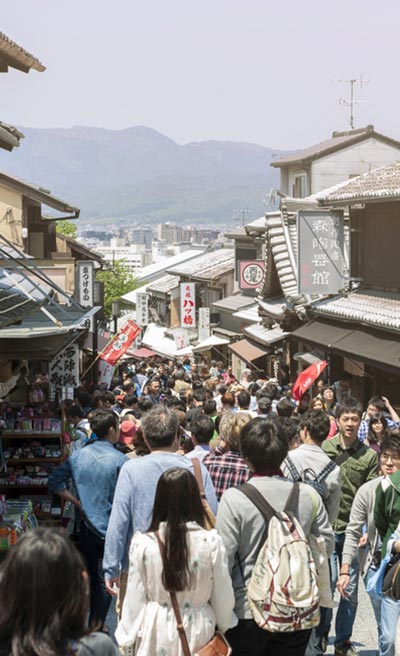Manners maketh man
Sustainable travel etiquette: Do’s and Don’ts in Japan
Japan seamlessly blends modernity with deep-rooted traditions, with a growing number of offering travelers an enriching experience. As tourism rises, sustainable travel becomes essential in preserving Japan’s natural beauty, culture, and heritage. Here’s how you can travel mindfully and sustainably by respecting local customs, the environment, and communities.

Mindfulness and Empathy
Do’s
Support local and sustainable businesses
Choose locally owned accommodations, restaurants, and shops that prioritize eco-friendly practices. By supporting small businesses, you ensure that your spending stays within the community, and show these sustainable businesses that you care about sustainability.
Use public transportation
Take advantage of Japan’s energy-efficient trains, buses, and bikes instead of renting cars. Consider even taking the speed of bullet trains over domestic flights. For short distances, walking or cycling lets you explore at a slower, more mindful pace.
Respect waste management and recycling
Japan is meticulous about waste separation and recycling. Take time to understand local disposal systems, which usually separates plastics, aluminium cans, combustibles and non-combustibles. Note that this might vary from region to region.
In addition, littering is rare in Japan, and visitors should take care to maintain this cleanliness no matter where you are.
Join low-impact activities
Participate in activities that have a low environmental footprint, such as guided eco-tours, farm stays, and nature treks. Many rural areas in Japan offer immersive experiences that teach visitors about traditional crafts and community-driven initiatives to do social and environmental good.
Respect cultural norms and traditions
Sustainable tourism also means respecting local culture. Be mindful of Japan’s customs, such as removing shoes before entering homes or certain accommodations. When visiting temples, shrines, or traditional villages, observe the dress codes and rules. This demonstrates respect for the cultural heritage that locals strive to protect.
No waste, No harm
Don’ts
Don’t give in to FOMO (Fear Of Missing Out)
Some areas, especially famous tourist spots, experience overtourism, which strains local resources and disrupts daily life. Many tourists consider them a “must visit” and are scared of not seeing them, which doesn’t need to be so. Taking photos should also not be your priority over others’ discomfort.
Opt for less crowded destinations or visit popular sites during off-peak hours and seasons. Spread your time across multiple regions to walk the road less-travelled, creating your own unique experience of Japan.
Don’t waste food or resources
Japan values mindfulness and often think of mottainai (to avoid waste). When dining, order only what you can eat, as leaving food behind is seen as wasteful and rude. Many restaurants offer smaller portions, or you can share dishes to reduce waste.
Similarly, conserve water and electricity in your accommodations. Simple actions like turning off lights or limiting water usage are appreciated.
Don’t disturb natural and cultural sites
Japan’s natural and historical landmarks are deeply respected by locals. Many take special care of them, and are willing to share with mindful travelers. Stay on designated paths when hiking and avoid touching or defacing cultural relics. Never leave behind trash, and don’t pick plants or disturb wildlife. Your role as a responsible visitor is to help maintain the delicate balance of these spaces.
Don’t ignore community well-being
Sustainable travel is about benefiting local communities. Avoid large international chains in favor of local accommodations that invest in their community. Engage with local tour guides, artists, and farmers to ensure your visit creates a positive impact on both the environment and its people.
Don’t underestimate the importance of language and manners
A few simple words in Japanese, like “arigatou” (meaning thank you) or “sumimasen” (meaning excuse me), can go a long way in showing respect. Approach interactions with humility and patience. While Japan is a hospitable country, practice patience when navigating the language barrier or local customs for a virtuous cycle of positivity.


